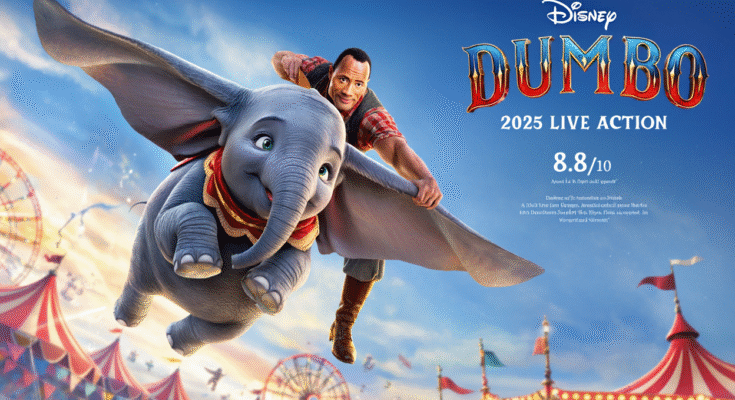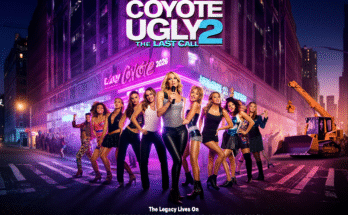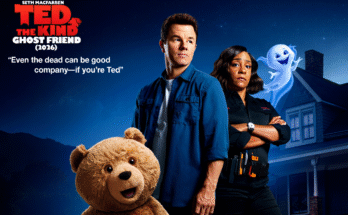Disney’s Dumbo (2025) arrives as a shimmering reminder of the studio’s ability to blend heartfelt storytelling with awe-inspiring spectacle. In reimagining one of its most tender classics, Disney crafts a tale that balances nostalgia with renewal, delivering a story that feels at once timeless and strikingly modern. With Dwayne Johnson stepping into the spotlight as a gentle circus strongman, the film finds its emotional anchor in unexpected places—proving that even in a world of spectacle, it is still the quiet beats of humanity that make us soar.

The first thing audiences will notice is the astonishing visual leap. Dumbo himself is a marvel of modern CGI: expressive, soulful, and utterly alive. His enormous ears, once symbols of ridicule, become wings of liberation in sequences that are as breathtaking as they are emotionally charged. Whether gliding beneath the circus lights or soaring into the dawn sky, Dumbo’s flight is captured with such realism and grace that it rekindles the wonder we felt when we first believed elephants could fly.
Dwayne Johnson’s presence might initially seem like a departure for such a delicate fable, yet he proves to be the film’s beating heart. As Atlas, a strongman whose mighty frame masks a wounded soul, Johnson brings warmth and vulnerability that deepen the story’s resonance. His bond with Dumbo isn’t just a friendship—it’s a mirror of their shared struggles. Both are seen as spectacles, valued for what they can do rather than who they truly are. In finding each other, they rediscover a sense of belonging.

Director Sam Mendes brings a painterly eye to the circus world, transforming what could have been a garish spectacle into something intimate and haunting. The big top becomes both a place of wonder and a cage, its colorful banners concealing shadows of exploitation and greed. Mendes balances this duality beautifully, ensuring that Dumbo’s triumph feels like more than spectacle—it’s an act of defiance against the forces that would clip his wings.
The supporting cast further enriches the narrative. Emily Blunt plays a trapeze artist caught between ambition and compassion, her arc intertwining gracefully with Atlas’s journey. Colin Farrell returns in a smaller role as a retired ringmaster, offering a subtle nod to the 2019 adaptation while grounding this version in continuity. Each performance, however brief, feels purposeful, adding depth to the tapestry of the circus and the lives woven within it.
Perhaps the film’s greatest triumph lies in its emotional layering. Children will delight in Dumbo’s wide-eyed innocence and spectacular flights, while adults will feel the sting of its deeper themes: the commodification of wonder, the weight of expectations, and the courage it takes to embrace one’s true self. The movie doesn’t shy away from melancholy, but it never loses sight of hope—a balance that keeps it soaring rather than sinking into sentimentality.

The musical score, composed by Alexandre Desplat, elevates the film to mythic heights. Gentle lullabies underscore moments of tenderness, while sweeping orchestral swells accompany Dumbo’s daring ascents. One theme, reprised during the climactic flight, is destined to become iconic—an anthem of resilience that lingers long after the credits roll.
Visually, the film is a feast. The play of light through circus tents, the shimmer of feathers caught on the wind, and the dreamlike vistas Dumbo glides across all contribute to a world that feels magical without being artificial. Mendes wisely uses restraint, allowing the CGI to enhance rather than overwhelm. The result is a film that dazzles without losing its humanity.
At its core, Dumbo (2025) is not about flight—it’s about freedom. It’s about finding the strength to rise when the world insists you stay grounded. Johnson’s Atlas learns this as much as Dumbo does, and their parallel journeys converge into a message that resonates across generations: that true courage is not found in muscles or wings, but in daring to believe in oneself.

By the final act, when Dumbo soars not as a circus act but as a symbol of liberation, the audience feels the lift as if it were their own. The film closes not with spectacle but with intimacy, a quiet reminder that dreams, once freed, can change everything. It’s a powerful conclusion that solidifies this reimagining as more than just a remake—it is a rebirth.
With its dazzling visuals, layered storytelling, and performances brimming with heart, Dumbo (2025) earns its 8.8/10 rating. It soars beyond expectations, proving that even after nearly a century, this little elephant still carries the weight of wonder—and the power to remind us all to fly higher than we ever thought possible.



